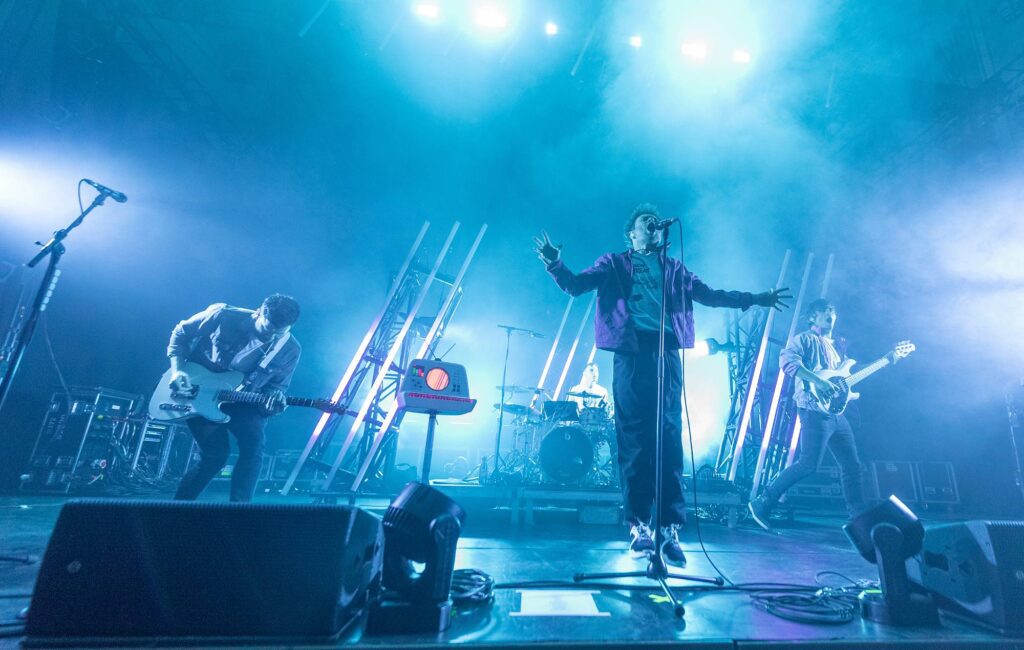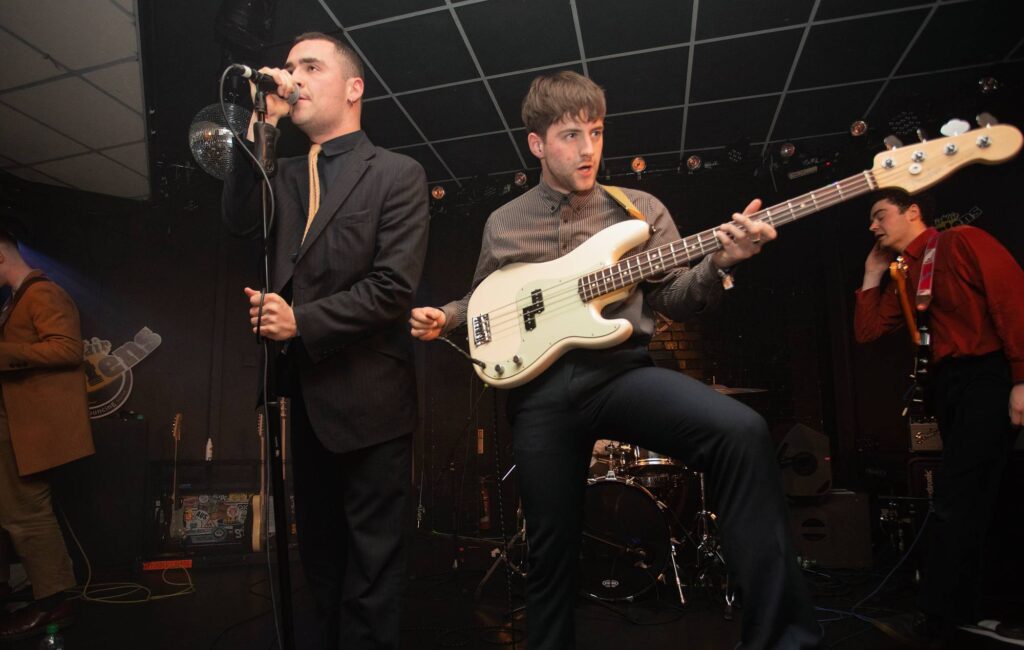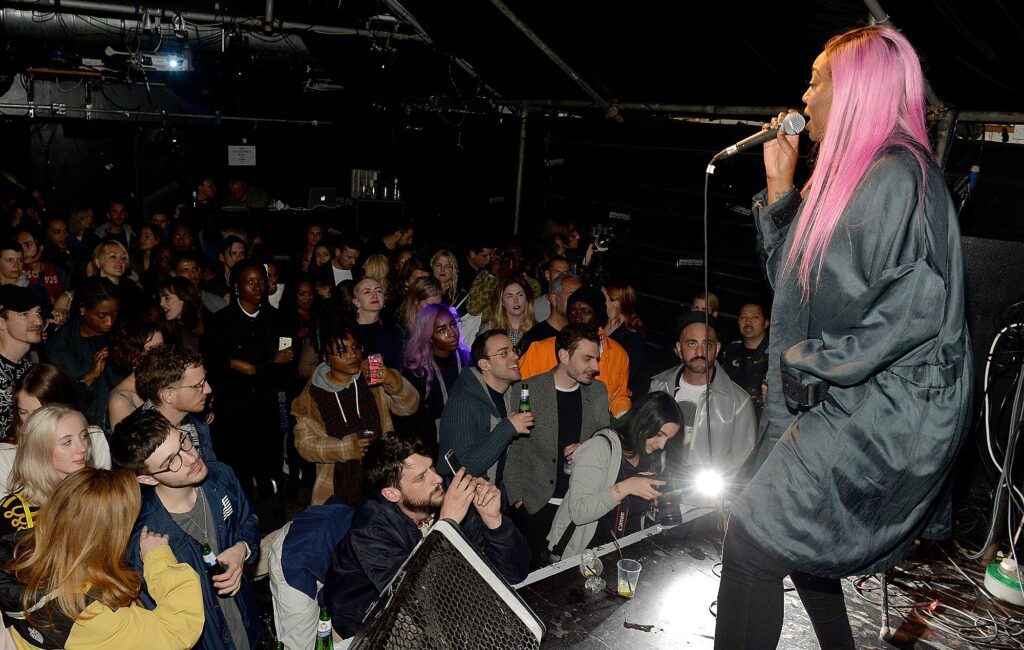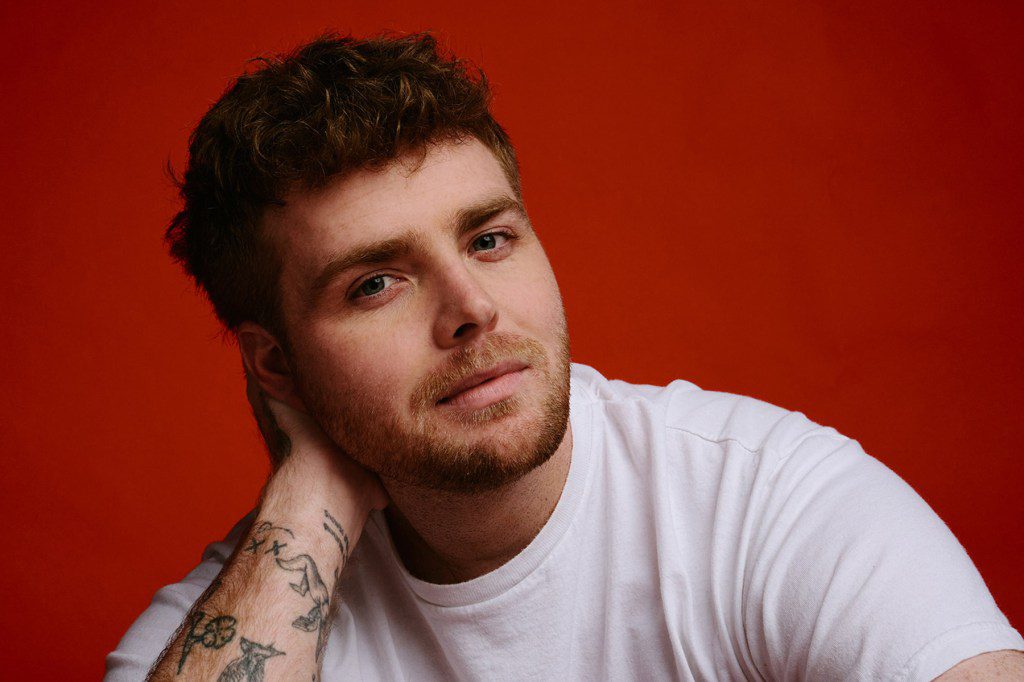UK to lose 10 per cent of grassroots venues in 2023, as calls grow for rest of industry to invest
The UK is set to lose 10 per cent of its grassroots music venues in 2023 – with calls growing for the “major leagues” of the music industry and larger venues to do more to pay into the ecosystem and save them.
The Music Venue Trust have revealed to NME that 67 venues have closed so far this year, with 90 currently working with MVT’s Emergency Response. Roughly half of those are likely to close in 2023 – giving a total of around 100 grassroots music being lost from the UK in 2023; that’s 10 per cent of the number of independent gig spaces in the country.
Following action being demanded earlier this year from government, the UK’s eight new large arenas and major record labels to “contribute to the security of the wider music ecosystem”, the MVT argue that the huge profits elsewhere are not justified when the “talent pipeline is about to be cut off”.
This comes as Enter Shikari announced that they would be donating £1 from every ticket sold to their upcoming UK and Ireland arena tour to benefit the Music Venue Trust.

“It sounds like there’s a lot of focus on providing spaces for the real high-end of the music industry,” Reynolds told NME. “There are a lot of new arenas on the way, while at the same time there is no support whatsoever for the grassroots circuit. There’s a very clear link between small venues and big venues – especially in the terms of providing new artists with a space to find their way in the industry and find their audience.
“We’re going to have all these new arenas without supporting the ways that artists can grow into them. It just all seems a bit silly!”
Speaking of their own initiative to donate money from their tour proceeds, Reynolds said that their example showed how simply the economy from larger gigs can benefit the grassroots.
“That’s always the way – you point out a fault in a system and someone comes back with, ‘Oh, well it’s a complex issue and you can’t just do this’,” he explained. “So we just did it, just to shut people up and show how easy it can be. We’ve also managed to not place any extra burden on our audience. The ticket prices are the same price as they were always going to be. We were keen to keep them below £40 and £1 from every ticket isn’t really going to effect us.
“More importantly, this is about getting those big venues to really start supporting this and helping the grassroots sector.”
Reynolds also argued that “most artists came up this way” through small independent venues, and that there was a responsibility for bands and acts to give something back once they’d graduated to arenas and stadiums.
“For us, it just seems like the obvious thing to do,” he said. “We wouldn’t be here if it wasn’t for these venues. The sad thing is that a lot of the venues that helped us are no longer here. I don’t want to see any more of them disappear. It’s not just me wanting to give back to associate some kind of personal sense of morality. We know how important these venues are.
“We’ve been part of communities built around them, and we know the good that they do for young people. They give them something to connect to, it gives them a place to go, and they deliver so many interesting styles of music. We’re losing around one a week in the UK, which is a terrifying statistic.”
Reynolds added: “People say, ‘Oh, everything’s online now and there are no scenes anymore’, but I’d say it’s now gone full circle and Gen Z are pining for these physical spaces to go to. We can’t all be bedroom DJs and TikTok stars. They have a desire to physically play and listen to music together and create those lifelong connections.”

Music Venue Trust CEO Mark Davyd hailed Enter Shikari’s example, and encouraged others in the music industry to contribute the keeping small gig spaces alive.
“I keep being told, ‘It’s too hard to find a way to connect the most successful bands with the most struggling venues’ – but it turns out it isn’t, because Enter Shikari just did it,” Davyd told NME. “They didn’t ask anyone’s permission, they just phoned me up and said, ‘By the way, we’ve done this’.
“They could see that we have this much-needed mechanism to put money into struggling venues and put £1 out of every ticket they sell into saving these venues and dealing with the problems they’re facing. Stop telling me how difficult it is. If you think it’s difficult, phone up Enter Shikari and ask them how they did it. In 10 seconds they’ll say, ‘We just told the promoters and the venues and everyone said ‘yes’.”
Davyd explained how grassroots venues were facing a perfect storm of the energy crisis, the cost of living crisis, landlords putting rents up, and how as “a sector that’s never had debts before” it is still catching up with its collective post-COVID £90million debt.
Last year saw a reported £2billion spent on ticket sales in the UK, with summer 2023 seeing a bumper calendar for stadium and outdoor gigs – with 1million people attending live music events in London just in one week along back in July, thanks to huge outdoor shows from the likes of Bruce Springsteen, Blur, The 1975, Billy Joel and Lana Del Rey.
Davyd echoed the MVT’s warning from earlier this year, that the entire live music industry was headed “over a cliff edge” without government action or without eight of the UK’s new large arenas to “contribute to the security of the wider music ecosystem by investing a percentage of every ticket they sell into the grassroots music ecosystem”.
“There are more big concerts going on and people are paying more money for tickets than they ever have,” Davyd told NME. “This is the best year for live music in the UK in terms of gross receipts that there’s ever going to be. It’s not possible to make an argument that this can be accompanied by 100 venues closing down, cutting down access to live music for communities and cutting off the talent pipeline for artists that’ll never get to play.
“These two things aren’t compatible, and no one can tell me that it’s acceptable for the top-end of the industry to be turning in these massive gross receipts from these huge tours in stadiums and arenas while a venue 15 miles down the road is closing down because it doesn’t have the £10,000 it needs.
“The amount of money it takes to keep these small venues open is incontestably small in comparison to the money that’s being brought in at the top.”
He added: “We’ve been too slow. This is going to play out in a very negative way for the live music industry: 67 venues closed so far, 100 venues closing this year, that is 10 per cent of all the venues in the country gone, 10 per cent of UK artists that won’t get the chance to play their first show, 10 per cent less Ed Sheerans to play these stadiums.
A number of the eight new arenas set to open in the UK – including Manchester’s Co-Op Live and London’s Sphere – later spoke to NME, responding to the call to invest in the grassroots music sector.
Ultimately, music fans were also encouraged to make the most of their local venues or risk losing them.
“We desperately need more bodies in these venues, quite frankly. I know it’s difficult and I know how hard it is, but if everyone can just be motivated and go out to support their local again, it would make a huge difference,” said Davyd.
“It was such a huge thing during COVID when everyone really understood: ‘I can’t let my local venue close, that’s where I go and see acts most regularly’. There’s been such a concentration on the huge shows that get massive publicity and big ticket prices, but what about telling them to go and see three breaking bands instead?
“There’s so much great British talent out there at the moment. All those bands desperately need an audience to get up off their arse and say, ‘I’m going to go out tonight and see what’s going on’.”

Earlier at this year at London’s International Live Music Conference, a panel of the UK grassroots music scene met and discussed how the “major leagues” of the music industry should invest back into the other end of the spectrum, just as the Premier League does with lower league clubs and new talent in football.
Nathan Clark is director of Leeds’ Brudenell Social Club director who used the panel to argue that now was the time for “the industry to take itself seriously and for the majors to see the grassroots as their lifeblood” and see them “as partners”.
“The time has come with the funnelling of technological development and the ability to just sit in at home and watch Netflix,” he said. “These are things that did not happen when we had four TV channels and a radio station. The current economy of live music is still built on people going out. That model is going to change. That’s where audiences across the UK are diminishing at times – the big shows are doing well and the middle shows are losing. That’s where I see the opportunity to reintegrate and work with people as partners on the ground.
“It’s the missed opportunity of people in major companies, because when the model breaks it’s their future that’s at risk. They may make their dividends this week, but what’s going to happen in the future?”
He continued: “We genuinely are the pollinators of the live music industry, and we are the R&D [research and development]. It’s not just live music though; this sector is catalyst for so many other creative industry and brands that don’t see the value because of the intangible fluffiness of it. We need to show and evidence how those trends affect it and what the value is of it.”
Alice Hoffman-Fuller, operations manager at Corsica Studios in London, agreed that “there is no ecosystem without something at the bottom – a breeding ground for musical and performance education”.
“That’s what the grassroots is,” she continued. “That’s where people learn their stuff to take them into a higher level of the entertainment industry. If we’re not there, the entire system collapses. That’s what we’re seeing at the moment. We’ve got a lack of original artists and there’s only one reason for that: they’ve got nowhere to actually perform. We’re losing venues all the time, and our venue has been under threat for years.”
She added: “We just have to get across to them that if we don’t exist, then they don’t exist. That’s all there is to it, really. That’s why we need to start demanding investment in what is the breeding pool where the artists come from.”
Last year, MVT also launched its ‘Own Our Venues’ campaign aimed at providing ownership to grassroots music venues across the country. The scheme, which was backed by Ed Sheeran, aims to secure the long-term futures of these venues by directly tackling the issue of ownership. The scheme has been likened to “The National Trust, but for venues”. A similar stand-alone initiative was launched by Sister Midnight, in a bid to become Lewisham’s first community-owned venue run by shareholders.
Sister Midnight co-founder and director Lenny Watson also spoke at the ILMC, and urged the industry to “invest in us, now”.
“It’s that simple,” Watson continued. “Whether it’s through share offers like through what Sister Midnight is doing or through what Music Venue Properties is doing.
“I don’t know rich people in this sector, but there are rich people out there. Make yourselves available for these conversations and don’t ignore the tiny grassroots organisations who are emailing you asking for just a £500 that could make all the difference.”
Back in February, MVT launched its 2022 annual report, showing that audience numbers were at 89 per cent of their 2019 level at about 21million, with the sector losing £79million a year. The report was first shared during an event attended by NME at the Houses Of Parliament, with a sobering speech about how the music industry was “on notice”.
“We are over the edge,” Davyd told those assembled at Parliament. “We’re not near the edge, we’re over the edge and we’re tumbling down. You need to throw a lifeline down. We can’t pay £79million a year to create the artists that are going to appear on your festival stages. It’s not possible for us to do that.”
Enter Shikari will give the welcome address at this year’s Venues Day held by MVT, with Steve Lamacq hosting a panel with DCMS Select Committee MPs. The event will take place at London’s Fireworks Factory on Tuesday October 17. Tickets are available here.




